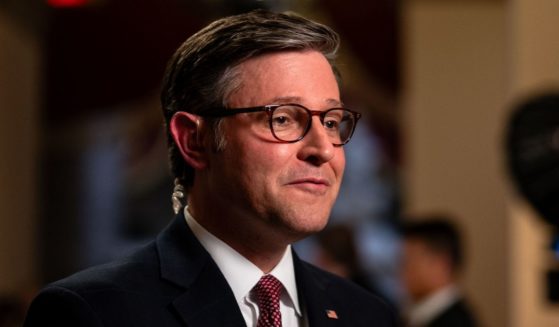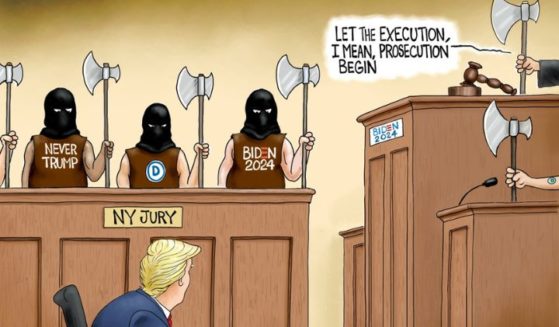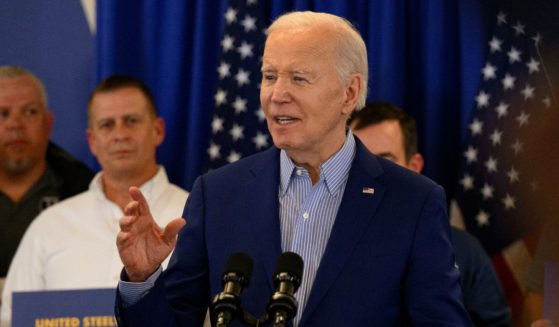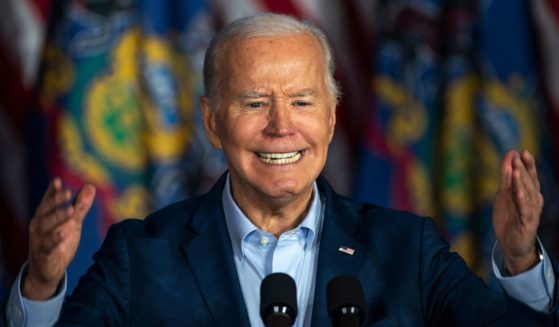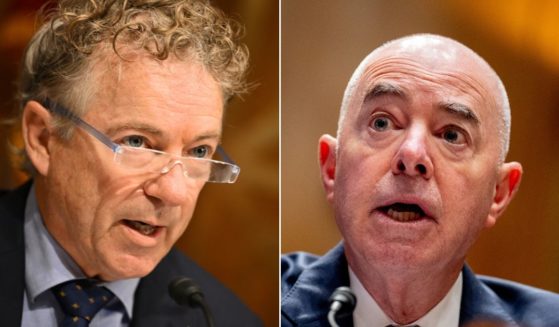Kari Lake's Attorney: This Is Not A Few Bad Signatures, But a 'Systemic Failure' In Voter Verification
Arizona Republican gubernatorial candidate Kari Lake’s lawyer, Kurt Olsen, said that Maricopa County did not have a few bad signatures on mail-in ballots in November’s election, but an entire “systemic failure.”
Wednesday night, the Arizona Supreme Court affirmed most of the trial court’s and the Arizona Court of Appeals’ rulings in favor of Democratic Gov. Katie Hobbs and Maricopa County, but did remand one of Lake’s claims — that signature verification laws for mail-in ballots were not followed by the county in 2022 — to the trial court for consideration.
The trial court had ruled in December that Lake had been too late in bringing up her claim that the county was not following proper procedures to ensure the identity of voters. She should have brought that up before the election, according to that decision.
That judge cited the doctrine of laches, which requires plaintiffs to assert rights in a timely manner, or they are barred from legal remedy.
However, in this week’s ruling, the Arizona Supreme Court disagreed. “Contrary to the ruling of the trial court and the Court of Appeals Opinion, this signature verification challenge is to the application of the policies, not to the policies themselves. Therefore, it was erroneous to dismiss this claim under the doctrine of laches because Lake could not have brought this challenge before the election.”
Olsen told FrankSpeech.com host Emerald Robinson Thursday, “The Supreme Court did remand this case back on the issue of signature verification, which is a very, very significant issue.”
“There are literally over 100,000 ballots in question because of invalid signatures that were accepted and tabulated,” he continued.
“This is not a challenge about simply a few bad signatures. … This is about a systemic failure of the entire signature verification process, which is allowing tens of thousands of ballots with signatures that don’t match the record on file. And this is the only security feature for mail-in voting,” Olsen said.
.@Karilake Attorney Kurt Olsen: “This is not a challenge about simply a few bad signatures. This is about a systemic failure of the ENTIRE signature verification process.” pic.twitter.com/qShH7vgzJN
— Kari Lake War Room (@KariLakeWarRoom) March 23, 2023
Lake’s legal filing to the Arizona Supreme Court stated that “whistleblowers conducting signature verification at [the Maricopa County Tabulation and Election Center] came forward with the evidence that Maricopa disregarded Arizona law and allowed tens of thousands of uncured ballots with nonmatching signatures to be counted.”
“Curing” ballots involves reaching out to voters whose ballots would be rejected due to errors in order to confirm the voter’s identity.
“So the question really becomes who is mailing in all these votes with signatures that don’t match the voter signature on file? … It really goes to the heart of a critical issue for the security of mail-in voting,” Olsen said to Robinson.
In a statement issued after the Supreme Court’s ruling, Lake said, “Immediately following the election, multiple Maricopa County Elections Department officials — individuals who were involved in the signature verification process — reached out to me and urged my team to review the signatures.”
“Three whistleblowers came forward with revelations of massive failures in the signature verification process. These whistleblowers were intimately involved in the process and they allege that Maricopa County WILLFULLY ignored law and procedure,” she added.
“When we verify these allegations, there will be no doubt that this election was compromised and that its results fail to meet the standard of certainty as outlined in Arizona law.”
My statement on the Arizona Supreme Court ruling in favor of our case ⤵️ pic.twitter.com/pxo8j0Ubs2
— Kari Lake (@KariLake) March 23, 2023
In January, Lake had elaborated, “We have three whistleblowers in the signature verification department in Maricopa County, who said that they were rejecting tens of thousands of signatures to the tune of up to 130,000 ballots that were being rejected for bad signatures. And somebody above them was sending them on through anyway.”
.@KariLake: “We have 3 whistleblowers in the signature verification department in Maricopa… Who said that they were rejecting tens of thousands of signatures to the tune of up to 130,000 ballots that were being rejected… Somebody above them was sending them on through anyway” pic.twitter.com/cnccVZRtqp
— Kari Lake War Room (@KariLakeWarRoom) January 14, 2023
Hobbs defeated Lake by approximately 17,000 votes, or about 0.7 percent of the over 2.5 million ballots cast.
Shiva Ayyadurai — founder of the Election Systems Integrity Institute, who testified before the Arizona Senate in September 2021 following the Maricopa County audit — argued the problems with signature verification should have been fixed in the county after the 2020 election.
“The data is all there. It proves unequivocally that the curing process is flawed,” he told The Western Journal Friday.
“I do not believe any substantial difference took place between 2020 and 2022,” Ayyadurai added.
A study Ayyadurai’s group released in the spring of 2022 found that the mail-in signature verification process in Maricopa County was deeply flawed during the 2020 election.
Researchers reported that 11.3 percent of the approximately 1.9 million mail-in ballots should have gone through the curing process, rather than the 1.31 percent that did.
That translates to more than 215,000 needing to be cured versus the “upwards of 25,000” identified by Maricopa County for further verification.
The county rejection rate was 2.3 percent for those going through the curing process, which meant only 587 ballots were ultimately rejected, or 0.03 percent of the ballots cast.
In an email to The Western Journal in March 2022, Maricopa County refuted Ayyadurai’s findings, stating the signature verification process was accurate and complete in the election.
The county further said: “We responded to every allegation put forward by the Senate and its subcontractors and conclusively demonstrated that Maricopa County administered the election with integrity and the results were accurate and reliable.”
Truth and Accuracy
We are committed to truth and accuracy in all of our journalism. Read our editorial standards.

